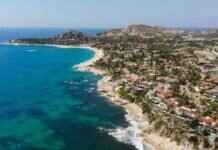Willie Geist recalls Sheinelle’s husband, Uche Ojeh, in a touching tribute that lasts 55 seconds. Hugh Grant chats about his film “Heretic” and his classic rom-coms for a lengthy 8 minutes and 4 seconds. Passengers on a Southwest flight spill their hearts out in a flight attendant’s journal for a little over 2 minutes. Scottie Scheffler beams with pride as his baby boy takes his first stand after his PGA victory, a moment captured for 3 minutes and 10 seconds. Ed Smylie, the heroic engineer who played a crucial role in saving the Apollo 13 crew, passes away at the remarkable age of 95, a legacy that is honored for 2 minutes and 4 seconds. The TODAY editor finds himself in the presence of Pope Leo’s blessing during Sunday Mug Shot, a spiritual experience that lasts 1 minute and 32 seconds. The impact of George Floyd’s tragic death on policing is explored after 5 years in a segment that runs for 4 minutes and 39 seconds. The hunt for escaped inmates in New Orleans enters its second week as the search intensifies for 1 minute and 51 seconds. Millions prepare for severe weather during Memorial Day weekend travel, a concern that is highlighted for 1 minute and 51 seconds. Former President Trump delivers a commencement speech at West Point’s graduation, addressing the future leaders for 1 minute and 53 seconds.
Gloria Estefan opens up about her new album and Latin roots in a candid interview that spans 8 minutes and 17 seconds. A guitar shop showcases their craft of making instruments from discarded wood from iconic NYC landmarks in a feature that lasts 2 minutes and 49 seconds. The passing of Holocaust survivor Margot Friedländer at the age of 103 is marked in a tribute that runs for 2 minutes and 7 seconds. Travis Hunter receives unexpected praise from a stranger for being the “nicest young man” in a heartwarming story that unfolds over 4 minutes and 50 seconds. Bill Geist celebrates his 80th birthday while representing the University of Illinois, a milestone captured in 2 minutes. The FAA’s efforts to modernize the outdated air traffic control system are explored in a segment that lasts 4 minutes and 3 seconds. Former President Trump suggests that Walmart should absorb the cost of tariffs in a brief 37-second clip. Pope Leo XIV delivers his inaugural Mass to a crowd of thousands, a momentous occasion lasting 1 minute and 38 seconds. The death toll climbs to 27 as a storm system wreaks havoc across the US, a devastating update shared for 1 minute and 43 seconds. Amidst all this, Russia launches its largest aerial attack on Ukraine in the ongoing conflict, a concerning development that is covered in just under 2 minutes.
As the world continues to navigate through a myriad of events and emotions, the stories shared on various platforms offer glimpses into the lives of individuals who have made a difference, faced challenges, and celebrated milestones. From personal tributes to global conflicts, each segment captures a unique aspect of human experience, inviting viewers to reflect on the past, engage with the present, and consider the future. The blend of personal narratives, historical milestones, and current affairs creates a rich tapestry of content that informs, entertains, and inspires audiences worldwide. Whether it’s a heartwarming moment between a father and his son, a tribute to a remarkable individual, or a glimpse into geopolitical tensions, each story adds a layer of depth to the collective narrative of our shared humanity. In a world filled with uncertainties and complexities, these stories serve as reminders of the resilience, compassion, and courage that define the human spirit.















